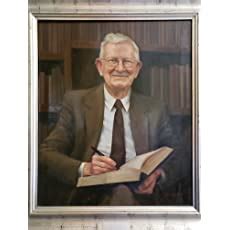A Quote by Francois de La Rochefoucauld
We often pride ourselves on even the most criminal passions, but envy is a timid and shamefaced passion we never dare to acknowledge.
Related Quotes
Envy is the most universal passion. We only pride ourselves on the qualities we possess, or think we possess; but we envy the pretensions we have, and those which we have not, and do not even wish for. We envy the greatest qualities and every trifling advantage. We envy the most ridiculous appearance or affectation of superiority. We envy folly and conceit; nay, we go so far as to envy whatever confers distinction of notoriety, even vice and infamy.
In existing criminology there are concepts: a criminal man, a criminal profession, a criminal society, a criminal sect, and a criminal tribe, but there is no concept of a criminal state, or a criminal government, or criminal legislation. Consequently what is often regarded as "political" activity is in fact a criminal activity.
There is a diabolical trio existing in the natural man, implacable, inextinguishable, co-operative and consentaneous, pride, envy, and hate; pride that makes us fancy we deserve all the goods that others possess; envy that some should be admired while we are overlooked; and hate, because all that is bestowed on others, diminishes the sum we think due to ourselves.
All other passions build upon or flow from your passion for Jesus. A passion for souls grows out of a passion for Christ. A passion for missions builds upon a passion for Christ. The most crucial danger to a Christian, whatever his role, is to lack a passion of Christ. The most direct route to personal renewal and new effectiveness is a new all-consuming passion for Jesus. Lord, give us this passion, whatever the cost!
It is one thing to be delivered from bad thoughts, and another to be freed from the passions. Often people are delivered from thoughts, when they do not have before their eyes those things which produce passion. But the passions for them remain hidden in the soul, and when the things appear again the passions are revealed. Therefore it is necessary to guard the mind when these things appear, and to know toward which things you have a passion.
Why should we desire the destruction of human passions? Take passions from human beings and what is left? The great object should be not to destroy passions, but to make them obedient to the intellect. To indulge passion to the utmost is one form of intemperance - to destroy passion is another. The reasonable gratification of passion under the domination of the intellect is true wisdom and perfect virtue.
Pride is a terrible and dangerous thing. It can take so many forms; it can even assume the appearance of humility. Pride can lead not only to self-exaltation, but also to self-abasement. The key to battling pride is not found in struggling against thinking too highly of ourselves or in striving to think of ourselves as lowly. The key is found in simply not thinking about ourselves at all, but setting our minds on Christ and the needs of others.
I envy people with dreams and passions, but I don't think that way. I still don't have a 'bliss' to follow. For people like me - I suspect that's most people - holding out for a 'dream' or a 'passion' is paralyzing. I just like having work I enjoy that feels meaningful. That's hard enough... but it's enough.



































